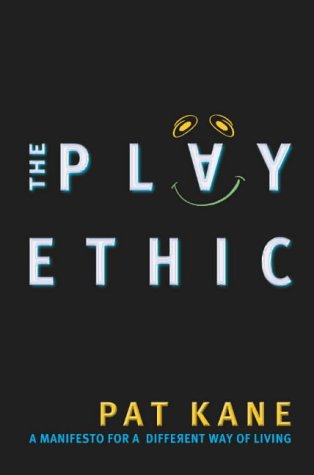Lego. We all played with it as kids, right? (Well if you were born in the 60s or 70s you did). It's time to get your old Lego out of the garage at Mum's, because the Lego company have set up a business consultancy and training arm called "Serious Play" (don't believe me? check out www.seriousplay.com). Serious Play is:-

An innovative, experiential process designed to enhance business performance. Based on research that shows that this kind of hands-on minds-on learning produces a deeper, more meaningful understanding of the world and its possibilities, Lego Serious Play is an efficient, practical and effective process that works for everyone within an organisation.
Um, which means, basically, you go to a work planning-day and you get to play with Lego!! But what the good people at Lego have discovered is this: play works. Playing is something that enhances the creativity and cohesion of groups of people. It engages people, and lets them take risks. Play is unlimited, special and voluntary. And most of all, it is fun.
I learnt about play from Pat Kane's book The Play Ethic " A Manifesto for a Different Way of Living. This sprawling website of a book is perhaps a little less fun to read than it ought to be and could be half as long. It swings between groovy journalist chat and would-be academic prose. However, it contains a real and profound challenge to the way we live life in the west.
Kane makes the case that we have denigrated play for far to long in Western culture such that we have limited the potential for human creativity and enjoyment. For us, work is the serious business. Serious people work hard; and it is morally good to embrace hard work. Both Labor and Coalition politicians appealed to the ethic of hard work in Australia's recent election. A dole bludger is one of the most shameful people in our culture. Think of the way we speak of "wasting time" as if it is morally wrong.
And yet the digital revolution has spawned a generation of people for whom play is work is play. Kane calls them "Soulitarians", and travels to Finland to meet some. Finland, he reports, has a tertiary education system with no fees and no deadlines, allowing students to play around with knowledge and technology "feeling their way into their life's vocation". It is in this period that some of the most innovative ideas arise " most famously, Linus Torvalds inventing the Linux system at age 21. Publishing the operating system for free, as Torvalds did, is a very Soulitarian thing to do. Very unMicrosoft. Not dot.commerce, but dot.communist, perhaps?
Play is spiritual, says Kane. Of course, Kane talks about spirituality as if it is another way of talking about human beings and their longings He is quite savage in his condemnation of the Puritans for the "250 year suppression of play by the Protestant work ethic" against which he offers the ethic of play. This is "a deeply limited vision of human possibility." The decline in organized religion has meant a corresponding rise in "disorganized spirituality". The Protestant work ethic, offering duty, routine, deferral of pleasures, regulation of intensities " offers little, he argues, to the postmodern person who lives in the universe of risk, openness and opportunity. Those who experience "as so many do " a gap between "their interior richness and the limited expressiveness of their exterior lives" because of the blandness of their jobs will not find satisfying an ethic which holds hard work as belonging to a higher moral order.
Play, on the other hand, is about possibilities and pleasures. It is non-utilitarian and un-economic, when so much of the world is framed by the bottom line. Kane is at pains to assert the productiveness of play, but also wants to show that it doesn't need justification according to what it produces. Ultimately, it is just a better way for everyone to live.
These are fascinating challenges directed to the Christian worldview. I am not sure whether he has accurately read the Puritans, but the "work ethic", whatever its origins, is certainly alive and well in the materialist west. What is needed from Christians is a re-evaluation of the notion of the Sabbath and of the nature of work. Remember that it was God himself who first rested; and his creative work sprang not from mere necessity (though sometimes I have heard God defended as if he is a prisoner to some eternal principle) but from his sovereign freedom.
But also Christian theology urges us to take the long view. Kane describes a brilliant X-Box ad, where a baby is seen being shot out of its mother through the air. As it travels we see it age until it lands, in its coffin, an old man, dead: "Life is short. Play hard". There is truth to this of course; but the world ordered to Jesus Christ is a place where eternal life is a thing to anticipate; and so there need be no fear of missing out on play time.
Michael Jensen lectures in Church History and Theology at Moore Theological College in Sydney.























